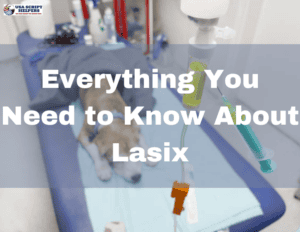Undergoing surgery is an important medical event, and it’s essential to prepare for it properly to ensure a successful outcome. If you are currently using Ozempic ( semaglutide) to manage your diabetes, you may be wondering whether it’s necessary to discontinue this medication before surgery. In this article, we will explore the considerations and recommendations regarding this medication and surgery to help you make an informed decision.
Importance of Surgical Preparation and Medication Adjustments
Effective surgical preparation, coupled with judicious medication adjustments, stands as a cornerstone in the journey toward a successful and safe surgical experience. Specifically addressing the question of discontinuing medications like Ozempic, a meticulous approach is imperative to ensure patient safety and optimize surgical outcomes.
Thorough preoperative assessments, including a comprehensive review of medical history and medication regimens, enable healthcare professionals to tailor their approach, minimizing potential complications. Thoughtful adjustments to medications, in consultation with healthcare providers, play a crucial role in mitigating risks associated with surgery, enhancing recovery, and ensuring a smoother postoperative course.
In the context of surgeries, the careful balance between maintaining glycemic control and minimizing potential medication-related complications is essential, highlighting the need for informed decisions and collaborative efforts between patients and their healthcare teams.
Factors Affecting the Decision to Continue or Discontinue Ozempic Before Surgery
When preparing for surgery, individuals managing diabetes with the medication often face the crucial decision of whether to continue or discontinue their treatment. This decision is influenced by several key factors that must be carefully considered to ensure the best possible outcome for the surgery and the patient’s overall health.
Type of Surgery:
- The nature and complexity of the surgical procedure are crucial factors. Minor surgeries with minimal impact on your diet and daily routine may allow for the continuation of this medication, whereas major surgeries that require fasting or have a substantial metabolic impact may necessitate temporary discontinuation.
Blood Sugar Control:
- Your current blood sugar levels and overall diabetes management play a pivotal role. If your diabetes is well-controlled with Ozempic, it may be possible to continue the medication. However, uncontrolled blood sugar may require adjustments or discontinuation to ensure a safer surgical environment.
Medication Timing:
- The timing of your surgery in relation to your dosing schedule is essential. Your healthcare provider will provide guidance on when to take your last dose before surgery and when it is safe to resume it afterward.
Alternative Medication Options:
- Depending on your specific medical condition and the requirements of your surgery, your healthcare provider may consider alternative diabetes medications or insulin therapy as a temporary replacement for Ozempic during the perioperative period.
Monitoring:
- Close monitoring of your blood sugar levels before, during, and after surgery is critical. Your healthcare team will work together to ensure that your glucose levels remain within a safe range throughout the surgical process, which may involve adjustments to your Ozempic regimen.
Each of these factors should be carefully evaluated and discussed with your healthcare provider to determine the most appropriate course of action regarding Ozempic use before and after surgery. Your provider’s expertise and guidance are essential in making decisions that prioritize your health and safety during this critical period.
Pre-Surgery Preparation
In this section, we delve into the critical aspects of pre-surgery preparation, focusing on the key considerations surrounding the decision to discontinue Ozempic and the impact on overall surgical readiness.
Healthcare Provider’s Assessment
Before undergoing surgery, it is essential to engage in thorough pre-surgery preparations to ensure a safe and successful procedure. A critical aspect of this preparation involves a comprehensive assessment by your healthcare provider. Your provider will evaluate your overall health, including your diabetes management, and assess how it fits into your surgical plan. This assessment may include a review of your medical history, a physical examination, and discussions about the upcoming surgery’s details.
Medication Regimen Evaluation
During the pre-surgery preparation phase, your healthcare provider will carefully evaluate your current medication regimen, with a specific focus on it. This evaluation aims to determine whether adjustments are necessary leading up to the surgery. Your provider will consider factors such as the type of surgery, fasting requirements, and the potential for medication interactions.
Depending on the assessment, your provider may recommend temporary discontinuation of Ozempic or alterations to your dosing schedule to ensure optimal diabetes management during and after the surgical procedure. It is crucial to follow your healthcare provider’s guidance regarding medication adjustments to minimize potential risks and promote a successful surgical outcome.
Blood Sugar Control
The Significance of Stable Blood Sugar Levels
Maintaining stable blood sugar levels is of paramount importance in the context of surgery for individuals with diabetes, especially those using Ozempic. Stable blood sugar levels promote a safe surgical experience and enhance post-operative recovery. When blood sugar levels are well-controlled, the risk of complications such as infections, delayed wound healing, and cardiovascular issues is significantly reduced. Additionally, stable blood sugar levels can lead to better anesthesia management and a smoother surgical procedure overall.
Monitoring and Adjustments
To achieve and sustain stable blood sugar levels before, during, and after surgery, vigilant monitoring and potential adjustments to your diabetes management plan are crucial. Your healthcare team will closely monitor your blood sugar levels throughout the surgical process. They may make necessary adjustments to your Ozempic dosing or recommend other interventions such as insulin therapy to ensure that your glucose levels remain within a safe range.
It’s essential for you and your healthcare provider to collaborate closely during this period, sharing information about your blood sugar levels, any changes in your condition, and adhering to the prescribed monitoring schedule. Consistent communication and timely adjustments are key to optimizing blood sugar control, reducing surgical risks, and facilitating a successful surgical outcome.
Post-Surgery Care
Monitoring Blood Sugar After Surgery
Post-surgery, diligent monitoring of your blood sugar levels remains crucial. Your healthcare team will continue to track your glucose levels to ensure they remain stable during the recovery period. Frequent monitoring allows for prompt intervention if any fluctuations occur, helping to prevent complications and maintain your overall health.
Insulin or Other Medication Requirements
Depending on the surgical outcome and your individual needs, adjustments to your medication regimen may be necessary during the post-surgery phase. Your healthcare provider will determine whether you should resume Ozempic or if other medications or insulin therapy are more appropriate. Adhering to these recommendations is essential to managing your diabetes effectively as you recover.
Nutrition and Hydration
Proper nutrition and hydration are integral components of post-surgery care, particularly for individuals with diabetes. Your healthcare team will provide guidance on a suitable diet and fluid intake to support your recovery while maintaining stable blood sugar levels. Following these recommendations is essential for a smooth and complication-free healing process.
Communication
Importance of Clear Communication with the Healthcare Team
Effective communication with your healthcare team is paramount throughout the surgical journey. Clear and open dialogue ensures that everyone involved in your care is well-informed and can make informed decisions to prioritize your health and safety. It’s essential to establish a strong line of communication, not only with your surgeon but also with your endocrinologist, anesthesiologist, nurses, and other healthcare professionals involved in your care.
Sharing Diabetes-Related Information and Concerns
As a person with diabetes, you play a crucial role in managing your condition. During the pre-surgery assessment and throughout the entire surgical process, be proactive in sharing diabetes-related information and any concerns you may have with your healthcare team. Whether it’s discussing your medication history, blood sugar trends, or any challenges you face, this open communication ensures that your care is personalized and optimized for your specific needs. By working together, you and your healthcare team can achieve the best possible outcomes for your surgery and diabetes management.
For comprehensive guidance on whether you should continue or discontinue Ozempic before surgery, consult with your healthcare provider. They will provide you with personalized recommendations tailored to your specific needs.
If you need to refill your Ozempic prescription, you can conveniently purchase ozempic online at USA Script Helpers, your trusted pharmacy partner. Ensure you have your prescribed medications on hand as you navigate your surgical journey. Your health and well-being are our top priorities.


















